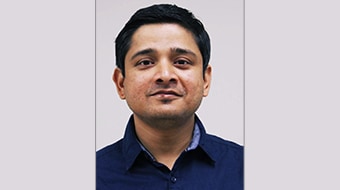The Supreme Court on Friday agreed to consider transferring to itself an array of cases that have challenged the validity of religious conversion laws framed by different state governments, including Uttar Pradesh, Gujarat, and Madhya Pradesh.
A bench, headed by Chief Justice of India (CJI) Dhananjaya Y Chandrachud, issued notices to the Centre and the concerned state governments on a common transfer petition, demanding all the cases be clubbed and decided together by the top court in view of the common issues involved.
The bench, which also included justice PS Narasimha, gave the state governments three weeks to file their replies to the transfer plea.
Attorney general (AG) R Venkataramani, however, said that he would be opposing the prayer to bring all the matters to the Supreme Court since the laws are state-specific, and it would be in fitness of things to allow the high courts concerned to examine the matter at the first instance.
“I am going to oppose the transfer. I am of a strong view that high courts should be allowed to examine the respective legislation. here are states legislation and they may have different provisions,” Venkataramani argued before the bench, citing cases pending before various high courts, including Gujarat, Madhya Pradesh, Himachal Pradesh, Uttarakhand, Karnataka, and Haryana.
He added that if the high courts were allowed to go ahead, the apex court could also have the advantage of one level of scrutiny.
The petitioner organisations, which have pressed for transfer of all cases to the apex court, included Jamiat Ulama-I- Hind, Citizens for Justice and Peace, Peoples Union for Civil Liberties, and National Federation of Indian women.
The bench was considering a petition by advocate Ashwini Upadhyay to ask the Law Commission to examine the feasibility of a penal law to punish acts of forced conversion. The other petitions, which questioned the validity of legislations framed by various state governments to penalise religious conversion for marriages, were taken up with Upadhyay’s matter owing to overlapping issues.
Representing Upadhyay, senior counsel Arvind Datar on Friday told the court that his client’s only plea was to refer the matter to the Law Commission for examining the feasibility of a new law to prohibit religious conversion through force or allurement.
But the bench retorted: “Why should we direct the Law Commission to do this? They will examine issues that they want to or are referred to them by the government. Why should we say they should examine any particular issue?”
It put off the hearing for three weeks, saying the objections to the transfer plea as well as to Upadhyay’s petition will be heard on the next date of hearing.
On January 6, the bench had observed that it may deliver a judgment on the legal issues involving religious conversion and the verdict may then guide the Law Commission to examine the matter.
The AG, however, countered this view arguing that any word from the apex court will constrict the scope of examination by the Law Commission. “Once this court says something, there is nothing that the Law Commission can do. A consultation of the Law Commission is only proper as the first step,” Venkataramani said on that day.






